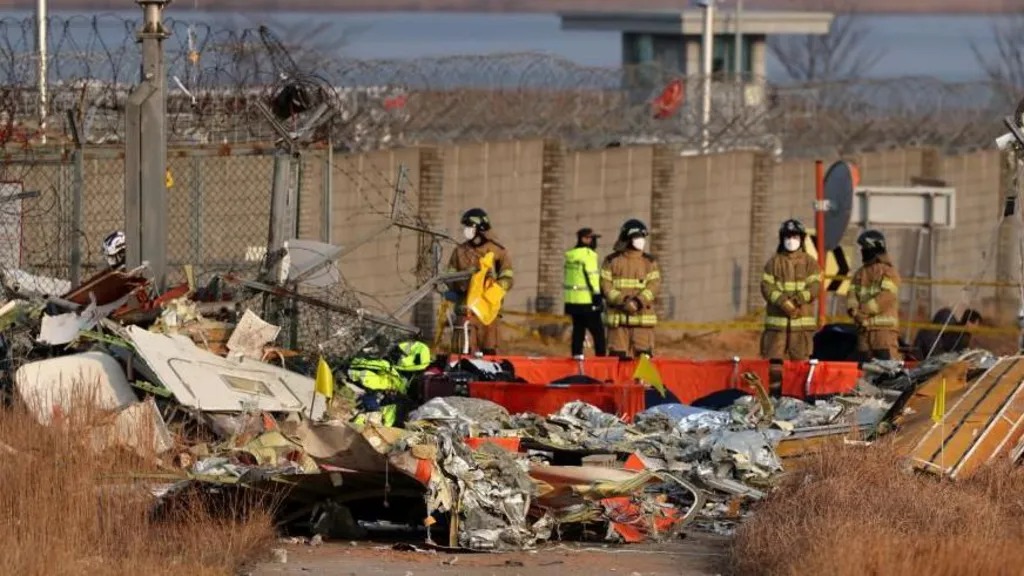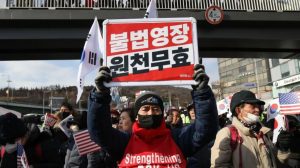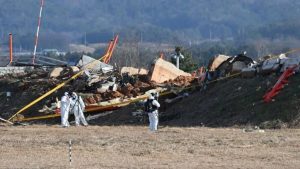
A devastating South Korea plane crash at Muan International Airport on Sunday morning claimed 179 lives, raising concerns about a possible bird strike. The Jeju Air flight, carrying 181 passengers and crew, was returning from Bangkok, Thailand, when it skidded off the runway and collided with a wall, erupting into flames.
What Happened?
The flight, identified as 7C2216, was a Boeing 737-800 operated by Jeju Air, one of Korea’s leading budget airlines. The aircraft arrived in Muan at approximately 09:00 local time but faced complications during its landing attempt. Authorities reported that air traffic control issued a bird strike warning moments before the crash. After the warning, the pilot attempted to land from the opposite direction. Tragically, the aircraft failed to deploy its landing gear, skidded along the runway, and ultimately crashed into a wall.
Videos from the scene depict harrowing moments, with smoke billowing from the burning aircraft. Emergency responders extinguished the flames, but the devastation left the plane almost unrecognizable except for the tail section.
Investigations Ongoing
While initial reports suggest bird strikes and poor weather conditions as possible contributors, officials are conducting a thorough investigation. Both the flight data recorder and the cockpit voice recorder have been recovered, though the former sustained damage. Passengers and aviation experts have noted inconsistencies, such as claims of a bird stuck in the wing and speculation about mechanical issues, but no definitive cause has been confirmed.
Understanding Bird Strikes
Bird strikes occur when an aircraft collides with birds mid-flight. While common, they rarely lead to catastrophic accidents. In this case, experts remain cautious about attributing the crash solely to a bird strike. Geoffrey Thomas, an aviation analyst, emphasized that bird strikes typically do not prevent landing gear from deploying. Additional factors, including weather and human error, are under consideration.
Impact and Response
The crash marks South Korea’s deadliest aviation disaster. Among the passengers were families returning from holidays, with victims ranging in age from three to 78 years old. Two crew members miraculously survived and are currently receiving medical care.
South Korea’s acting president, Choi Sang-mok, has declared a national mourning period. Families of the victims have gathered at Muan International Airport, awaiting updates and grieving their losses. Jeju Air has issued an apology and vowed full cooperation with the investigation. The airline, operational since 2005, has maintained an excellent safety record until now.
Boeing, the plane’s manufacturer, has also extended condolences and pledged support.
- Internal Link: Eurasia Sports
- External Link: BBC Report





